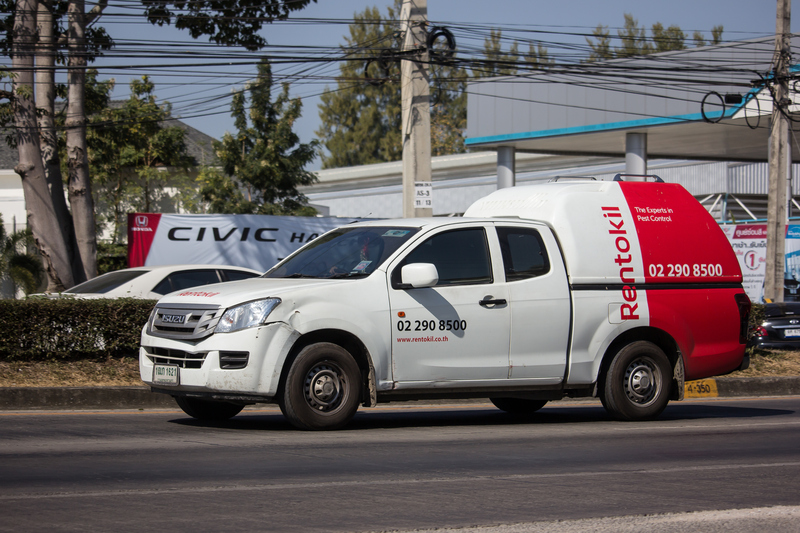Manufacturing companies
The Manufacturing industry operates on a global scale, with companies managing production facilities, supply chains, and customer demands across multiple countries. This global complexity requires an efficient Enterprise Resource Planning (ERP) system capable of addressing the unique challenges of cross-border operations.
Key challenges in the industry
Global supply chain management
Managing complex, international supply chains with diverse suppliers, transportation logistics, and regional regulatory requirements.
Production planning across multiple locations
Coordinating production across facilities located in different countries, each with varying operational capacities, labor laws, and resource availability.
Regulatory compliance and quality control
Ensuring adherence to regional and international regulations, including environmental standards, product safety certifications, and quality assurance protocols.
Cost management across different economies
Managing production costs and operational expenses in countries with different currencies, wage structures, and economic conditions while maintaining profitability.
Product customization for regional markets
Tailoring products to meet the specific demands, preferences, and regulations of local markets, while ensuring efficient production and delivery.

Streamlining global Manufacturing with international ERP
For manufacturers operating across multiple countries, implementing an international ERP system is essential for managing the complexities of global operations. From supply chain management to production planning, regulatory compliance, and product customization, a well-designed ERP solution ensures that manufacturing processes run efficiently and consistently, no matter where production occurs.
The right ERP system empowers manufacturers to optimize production, streamline supply chains, and ensure compliance with global regulations, all while controlling costs and maintaining product quality. With a global ERP solution in place, manufacturers can scale operations, respond to market demands, and stay competitive in an increasingly complex global marketplace
Tailored solutions
- Global supply chain management: A robust ERP system provides real-time visibility into the entire supply chain, from raw material sourcing to finished product delivery. It enables manufacturers to monitor supplier performance, optimize transportation routes, and ensure compliance with local import/export regulations. This is critical for maintaining production continuity across borders.
- Multi-site production planning and scheduling: Coordinate production across multiple plants located in different countries with real-time data on capacity, inventory, and labor availability. This allows manufacturers to balance production loads, optimize resource use, and ensure timely delivery to global markets.
- Regulatory compliance and quality control: ERP systems tailored for global manufacturing help ensure compliance with regional regulations, including environmental, safety, and product certifications. Quality control features, such as batch tracking and inspection tools, help maintain consistent product quality across different production sites.
- Cost control and multi-currency financial management: Manage costs effectively across diverse regions by using ERP tools designed to handle multi-currency transactions, local tax requirements, and cost allocation. This ensures financial efficiency while adhering to global accounting standards.
- Product customization and localization: ERP systems can manage product configurations, enabling manufacturers to customize products for different regional markets without disrupting production efficiency. This includes adjusting product specifications, packaging, and compliance requirements based on local market demands.
Key factors for successful ERP implementation
- Comprehensive global supply chain management: Look for an ERP system that provides real-time visibility into every stage of the supply chain. It should offer tools for supplier management, transportation logistics, and regulatory compliance to ensure smooth global operations.
- Multi-site production planning and scheduling: The ERP must support efficient coordination of production across multiple locations. Features like capacity planning, resource allocation, and production scheduling should be customizable to each facility’s specific needs and regional regulations.
- Regulatory compliance and quality control: A global ERP system must include features for regulatory compliance with different local and international standards, such as safety certifications and environmental laws. Quality control tools are essential for ensuring consistent product quality and meeting local market requirements.
- Cost control and financial management: The system should be capable of managing operational costs across different currencies, tax structures, and economic conditions. It should offer comprehensive financial management tools to ensure profitability and financial efficiency.
- Product customization for local markets: Ensure that the ERP system supports the ability to customize products for different regional markets, including modifications in product design, packaging, and regulatory compliance. This helps manufacturers cater to local customer preferences without disrupting overall production efficiency.
Get in touch
Send us an email
Let us know what your challenges are all about. We are here to help.
Customer Success Stories
Read about how we helped other companies in your industry

High quality international roll-out for Mundipharma Switzerland
Pipol is pleased to announce that this week our customer Mundipharma Switzerland, together...
3 min read

Rentokil Initial Standardizes Global Reporting Processes with Microsoft Dynamics
“We can consistently use the region’s standard reports and add-on tools. Thanks to...
4 min read

Roland Europe Group Streamlined their Warehouse and Financial Operations with Microsoft Dynamics 365
Roland Europe Group, a leading player in the musical instruments and professional audio...
4 min read
